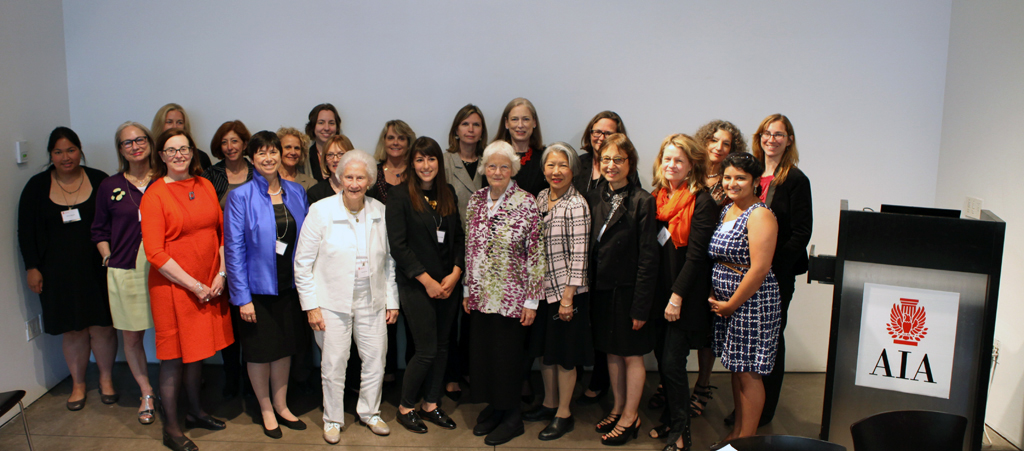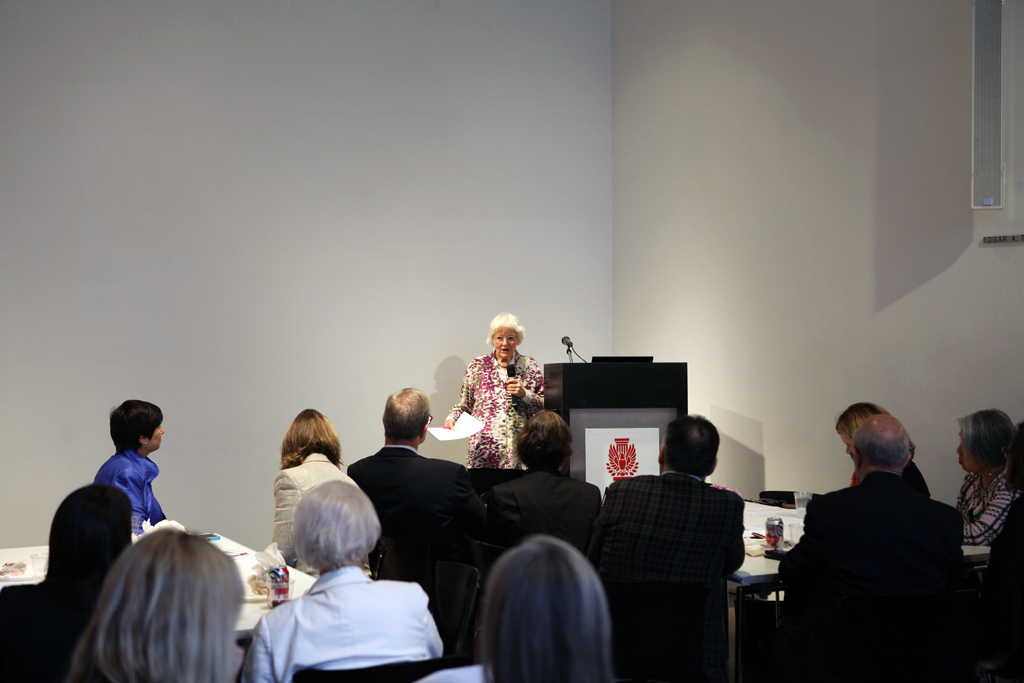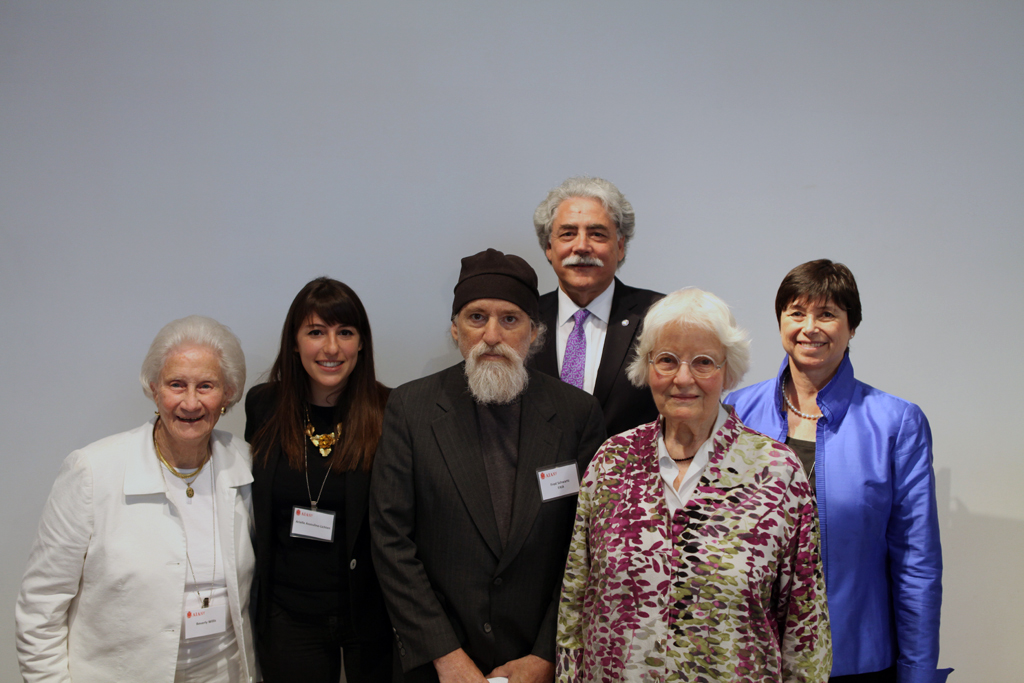by: Camila Schaulson Frenz
Denise Scott Brown, RIBA, Int. FRIBA, is a household name in the world of architecture. An architectural education that does not include Learning from Las Vegas, written in collaboration with her husband Robert Venturi, FAIA, and Steven Izenour, FAIA, is incomplete. Nonetheless, in 1991, the Pritzker Prize jury overlooked one half of the team responsible for a tremendously influential body of work, conferring the award solely to her husband. Twenty-two years later, at an Architects’ Journal Women in Architecture luncheon, Scott Brown asked to be retroactively acknowledged in the 1991 Pritzker Prize. This statement spurred a passionate debate about the role of women in architecture, and led two young women in the Harvard Graduate School of Design’s Women in Design Club to launch a petition to include Scott Brown as a Pritzker winner. The petition now has more than 14,000 signatures, including Rafael Moneo, Rem Koolhaas, Zaha Hadid, and Venturi himself.
In addition to revealing gender inequalities in the field, Scott Brown’s statements also force awards committees to reexamine the nature of architectural creation. In this increasingly interdisciplinary and global field, partnerships and collaborations have become the new reality. In recognition of this, the AIANY is supporting a petition to revise the criteria for the award of the AIA Gold Medal to include “two or more individuals practicing together…recognized as having created a singular body of distinguished architectural work.”
On Tuesday, 06.04.13, 2013 AIANY President Jill N. Lerner, FAIA, convened a lunch to outline the proposal, which would allow collaborators like Scott Brown and Venturi to be awarded joint recognition. As the architect responsible for starting this dialogue, Scott Brown was the guest of honor.
Scott Brown called for recognition of “joint creativity,” describing the experience of working in a team as a “ping pong of ideas over the drawing board.” Scott Brown and Venturi sent in joint submissions for the Gold Medal on four different occasions, only to be rejected and asked by apply separately.
While Scott Brown claims that the joy of collaboration has been recognized in other fields, architecture has somehow fallen behind, with awards choosing to perpetuate the myth of the (male) architect genius. Here, Scott Brown made reference to her 1989 essay, “Room at the Top? Sexism and the Star System in Architecture.” She emphasized the ecstasy she has felt working as an architect, claiming that with or without the Pritzker or the Gold Medal, she has won her own self-respect through her students and clients.
Despite her evident role in beginning a dialogue on creative collaboration, the architect refused to take sole credit for the initiative. Scott Brown began her speech by thanking the “waves of people” working to recognize joint submissions. She also thanked long-time friend and collaborator, Frederic Schwartz, FAIA, for initiating the move to change the AIA Gold Medal’s submission requirements. She later gave the necessary credit to the Harvard students who launched the petition, one of whom, Arielle Assouline-Lichten, was present (Caroline James, the other, could not attend). By giving everyone their due recognition, Scott Brown shows us that the only way to make a change and “get over the mountain” is by working together.
Event: Luncheon for Denise Scott Brown
Location: Center for Architecture, 06.04.2013
Speakers: Denise Scott Brown, RIBA, Int. FRIBA; Beverly Willis, FAIA; Jill N. Lerner, FAIA, 2013 AIANY President; George Miller, FAIA; Frederic Schwartz, FAIA; Cathleen McGuigan, Editor-in-Chief, Architectural Record
Organizers: AIANY










